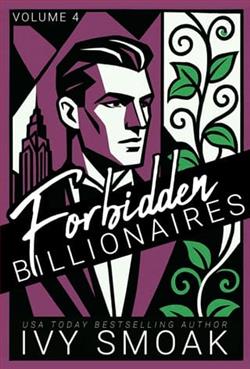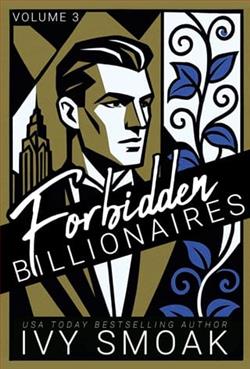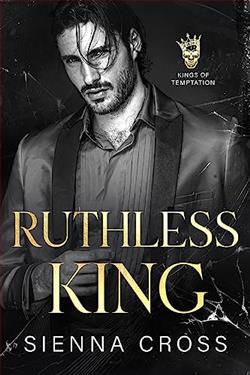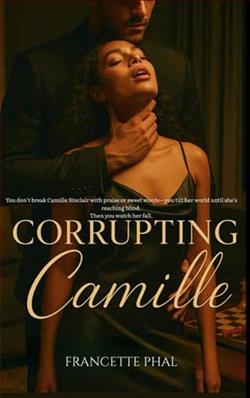Page 1 of Coram House
PART 1
1
I leave Brooklynbefore the rest of the city is awake. The day is bitter and damp. No snow. Just wet sidewalks and mounds of slush clogging the storm drains. Usually, I find the brick townhouses cheerful and bright, but today the gray sky drains the color from everything around me. I pull the building’s door shut and hoist my suitcase down the stairs. Patches of confetti glitter on the sidewalk. Soon they’ll be washed into the river along with the slush. It’s unusually quiet this morning. As if, a day later, the city is still sleeping off its New Year’s hangover.
New Year’s Eve was particularly cold and clear, so the sounds of people celebrating carried all the way up to my empty third-floor apartment. A knot of girls passed beneath my window, laughing and drinking tiny bottles of champagne through straws. I’d shivered to see their bare legs glowing white. I’ve always hated New Year’s.
A few days ago, Lola had come over with a bottle of wine to toast my new book. She knew the rough details: the old orphanage, the church, all the usual horror and abuse, the case that had finally broken everything open and then the settlement that had shut it back in the dark.
Sounds like bestseller materialwas all she said, even after I told her about the fine print: six months in Vermont and someone else’s name on the cover.
Ghostwriter.
After everything that had gone wrong with my last book, the word appealed to me. Like I wasn’t there. And besides, I had a pile of unpaid medical bills in a drawer. Three years since Adam died and they still keep coming. No one tells you about that part.
All right, Lola had said,I’ll help you pack.
And she did try, pulling clothes out of my closet and holding them up. A chunky striped sweater. A long red dress with flowers. I hadn’t worn any of it in years. She refilled my glass, tried to make it fun, but I’d begged off. After she left, I drifted around, finishing the bottle on my own. It seemed impossible to take things off the shelves. Like, over the years, they’d grown roots. Adam’s closet was already empty, at least.
Alone, I’d made a pile of the things I cared about. Photos from our wedding. The cone of a giant sequoia tree, tiny as an acorn, from a trip to California. A perfectly round stone I’d found in a Peruvian temple and smuggled home. It’s an ancient Ping-Pong ball, I’d told Adam. Each object came with a memory that I shoved into the locked cabinet in my mind to be dealt with later—on the advice of a therapist I’d seen a few times after Adam died. I’d never asked her what happened if you just leave the memories in there, the door firmly locked.
My pile had fit inside a single box. The box went into Lola’s basement. Everything else went to the curb. The tiny bottles of vinegar. Brass candlesticks. A set of ugly brown sheets. Objects that had piled up over the years as if washed ashore.
Today, my car is parked right in front of the building—a small miracle I found the spot. I bought the car in some New Jersey suburb the day after I signed the book contract. A used Toyota with seventy thousand miles and two matching dents in the roof where the previous owner drove it into a garage with a bike on the roof. I like that the car comes with its own story. I load my suitcase into the trunk next to the boxes of work stuff. Laptop and reference books. Blank pads of paper, my favorite highlighters, index cards, empty binder. My stomach growls.
It’s just past six in the morning, but theOPENsign at the deli promises hot coffee. I order my usual bagel with cream cheese and tomato slices, even though I know they will be pale and mealy. While I’m waiting, I drink in the bare branches of the trees in the park across the street, the chipped green paint of the stairs leading down to the subway. Pantone 350. New York green. My stomach tightens.
I’m being maudlin. The book contract is six months for a first draft. Then I can come back. Even here, I hardly leave the apartment in theearly stages of a project. Besides, this isn’t even a real ending—that came three years ago. It’s more like tearing off a hangnail. Painful, yes, to sever that thread of flesh. But also a relief.
I take my bagel, diapered in wax paper, back to the car. My phone pings as I slide into the driver’s seat—a text from Lola wishing me luck and telling me it’s supposed to snow and not to end up in a ditch. Also an email from Alan Stedsan, my new coauthor.
Dear Ms. Kelley, it begins, with the same formality as all his previous emails. Maybe lawyers can’t help themselves. He wishes me a safe drive and asks if I’ll come by his office tomorrow to get started. I type back a quick reply, agreeing.
We’ve only spoken once on the phone, but that was enough to paint a picture. Stedsan did most of the talking. He gave a brief overview of the case against the Catholic church and his vision for the book—history for true-crime fans. He needed someone good at both, he said. Like a young Erik Larson. His tone suggested this was the highest compliment.
That conversation was supposed to be an interview, but I got the sense he was searching for something inside my answers, some mysterious quality. Right before we hung up, he asked if I’d like any changes made to the draconian contract, though of course he didn’t call it that. Full editorial control for him. A punishing nondisclosure agreement for me with a six-figure slap on the wrist should I violate it. Plus, a ruthless schedule and a move to Vermont so he could keep tabs onourprogress.
I said no. It was fine, all of it.
My agent called an hour later with the offer. So I guess the quality he’d been searching for was compliance. Not so mysterious after all.
I pull up directions to the apartment I’ve rented sight unseen. Burlington, Vermont. Six hours north in an almost-straight line. The engine makes a metallic crunch as it turns over, but soon I’m merging onto Atlantic Avenue. Five blocks later, I realize I never took a last look at the apartment. A white van honks and cuts me off. Any regret is swallowed by the anxiety of trying to get on the highway without dying.
An hour north of the city, the traffic grows sparse. I reach for my bagel and coffee, both cold. Through the bare winter trees, I glimpse miniature towns down in the valley and snowy fields dotted with brownhorses or cows. By the time I reach Albany, its office towers and smokestacks seem enormous.
After that, the towns get smaller and farther apart until I stop for gas in a town that consists of a post office and general store nestled in snow-frosted evergreens. I fill up at the gas pump out front, switching hands every ten seconds so I don’t freeze.
Inside, I navigate racks of every imaginable type of potato chip—dill pickle, ketchup, shrimp—until I find the coffee nestled beside a case of sugared donuts. I once read about a man who slipped razor blades into gas station donuts. Someone had to get their tongue sewn back together. I fill up a cup and take a donut out of the case and pay. Outside, the cold winds around me like it missed me. The donut tastes of apples and cinnamon. It’s delicious. No razor blades either.
Adam told me once that I see danger everywhere. He blamed it on my books. His theory was that if I wrote about kittens instead of people who were murdered, the world would feel less threatening.
No one wants to read books about kittens, I’d argued.
Everyone wants to read books about kittens, he’d said.
But I think I got the argument all wrong. Maybe I do see danger everywhere, but that’s because the world is dangerous. Some donuts will slice your tongue off. My books aren’t made up, is what I should have said to him. They’re facts. He’s the one who didn’t see things as they are. He’s the one who believed life would get better, right until the end.
I wonder what Adam would say about this new project. More darkness and death. Maybe he would have been excited at the prospect of leaving New York for a few months. Or maybe he would have hated it. For a while, I could summon his voice—imagine just what he’d say and how he’d say it. But it doesn’t work anymore. In my head, his voice just sounds like my own. The pain of this is less sharp than it used to be. More like pressing on an old bruise.















